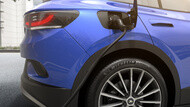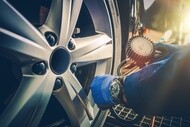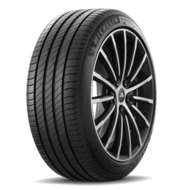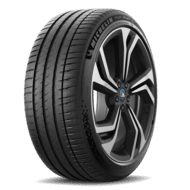
(1) - MICHELIN e·PRIMACY category of tyres is defined as one of the Premium summer tyres such as CONTINENTAL, GOODYEAR, BRIDGESTONE, PIRELLI, DUNLOP brands, and which are not dedicated to Original Equipment application (i.e. not designed to achieve car manufacturers specific targets) but tyres that can be purchased from retailers.
(2) - Increased EV battery range and CO₂ reduction - When new, MICHELIN e·PRIMACY generates 2kg/t on average Rolling Resistance less than competitors, equivalent in fuel consumption reduction of up to 0.21l/100km, equivalent of a gain in CO₂ emission up to 5g for a VW Golf 7 1.5 TSI or equivalent of gain of up to 7% in autonomy for a VW e.Golf.
(3) - Rolling Resistance internal study conducted in 10/2020, on dimension 255/45 R19, comparing MICHELIN Pilot Sport EV (6.7kg/t) versus MICHELIN Pilot Sport 4 SUV (8.8kg/t). For an electrical vehicle of a mass 2151kg, with an autonomy of 540km, this gap of 2.1kg/t drives to a gain of autonomy of more than 60km, or more than 10% of the initial range.







